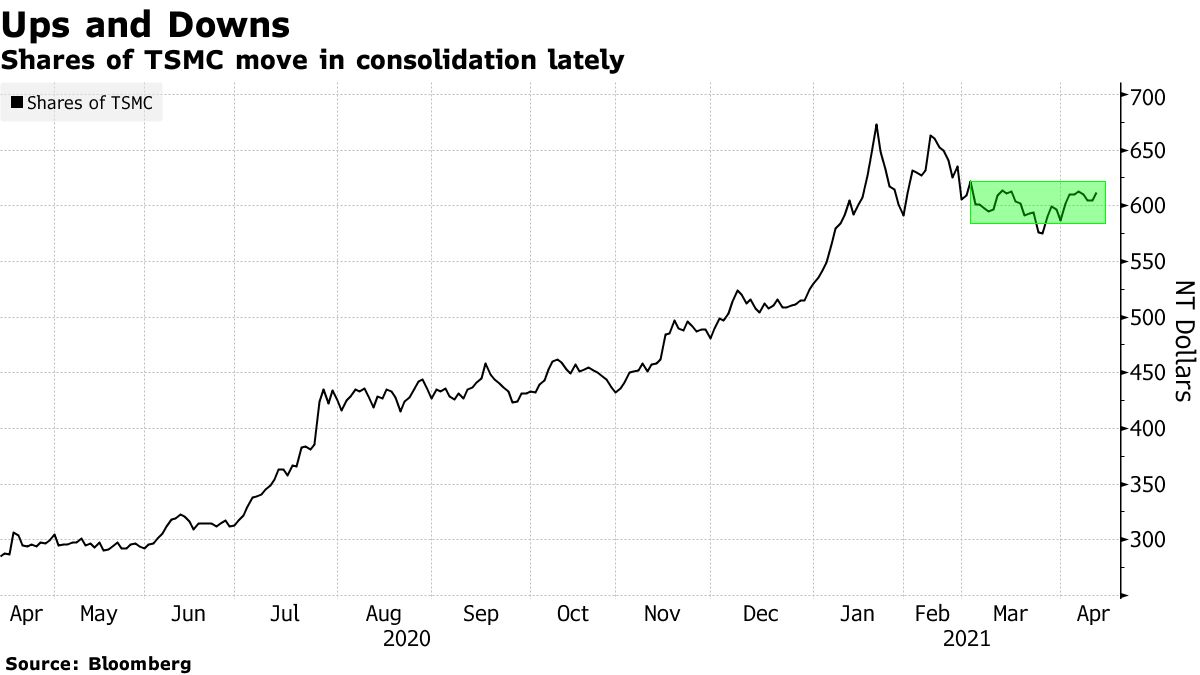Taiwan Semiconductor Manufacturing Co., (TSMC) the world’s largest contract chipmaker, boosted its spending and revenue growth targets for this year as tech companies stretching from carmakers to PC suppliers scramble for chips.
The world’s No. 1 maker of advanced silicon said on Thursday that its automaker industry clients can breathe a sigh of relief and expect chip shortages to begin easing next quarter. Supply disruptions that have forced the likes of GM and Ford to curtail production would alleviate a little. However, Chief Executive Officer C.C. Wei told analysts on a conference call that overall deficits of critical semiconductors will last throughout 2021 and potentially into next year.
This year, after spending $8.8 billion in the first three months, TSMC now expects investments of about $30 billion on capacity expansions and upgrades, Chief Financial Officer Wendell Huang said. The company had previously forecast spending of as much as $28 billion. Sales in the June quarter may beat the average $12.8 billion seen by analysts and reach $13.2 billion, while full-year revenue may climb 20% in dollar terms, ahead of the “mid-teens” growth predicted in January.
“We see the demand continue to be high and the shortage will continue throughout this year and maybe extended into 2022 also,” said CEO C.C. Wei, according to Bloomberg.
TSMC provides the chips that power Apple Inc.’s iPhones, smart TVs, and connected cars, the surge in demand for these chips has thrust the Taiwanese company into the center of a global supply chain crunch that has idled auto plants and fueled a shortage of popular consumer products like game consoles such as the PlayStation 5 and Xbox X. While TSMC has kept its fabs running at “over 100% utilization,” it still cannot satisfy all its customers and it has pledged to invest $100 billion over the next three years to expand.
Net income for the Q1 of 2021 climbed 19% to NT (New Taiwan) $139.7 billion ($4.9 billion USD), versus the average analyst estimate of NT$136.2 billion. Gross margin for the Jan-March period eased to 52.4% from 54% in the three months prior, due in part to exchange-rate fluctuations and relatively lower levels of utilization. According to a company statement last week, Q1 revenue rose 17% to NT$362.4 billion.
“TSMC is likely to achieve a CAGR (compound annual growth rate) of 15% with its $100 billion CAPEX spending over the next three years due to better-than-expected long-term semiconductor demand,” Cathay Futures analyst Felix Hsu said in a note dated April 7.
U.S. President Joe Biden has proposed $50 billion to support semiconductor research and manufacturing at home as major American carmakers and other gadget suppliers face a prolonged shortage of chips. TSMC’s $12 billion plan to build a cutting-edge fab in Arizona this year could be aided by the initiative.
Shares of the largest Taiwanese company have more than doubled over the past year. On Thursday, the stock advanced 1.1% before the company reported earnings.

The Taiwanese chipmaker’s most advanced technologies continued to account for nearly half of revenue, with 7nm and 5nm processes contributing 35% and 14% of sales, respectively. According to a report by Bloomberg, “by business segment, TSMC’s smartphone business amounted for about 45% of revenue, while high-performance computing increased to more than a third, reflecting sustained demand for devices even as economies start to emerge from the pandemic.”








